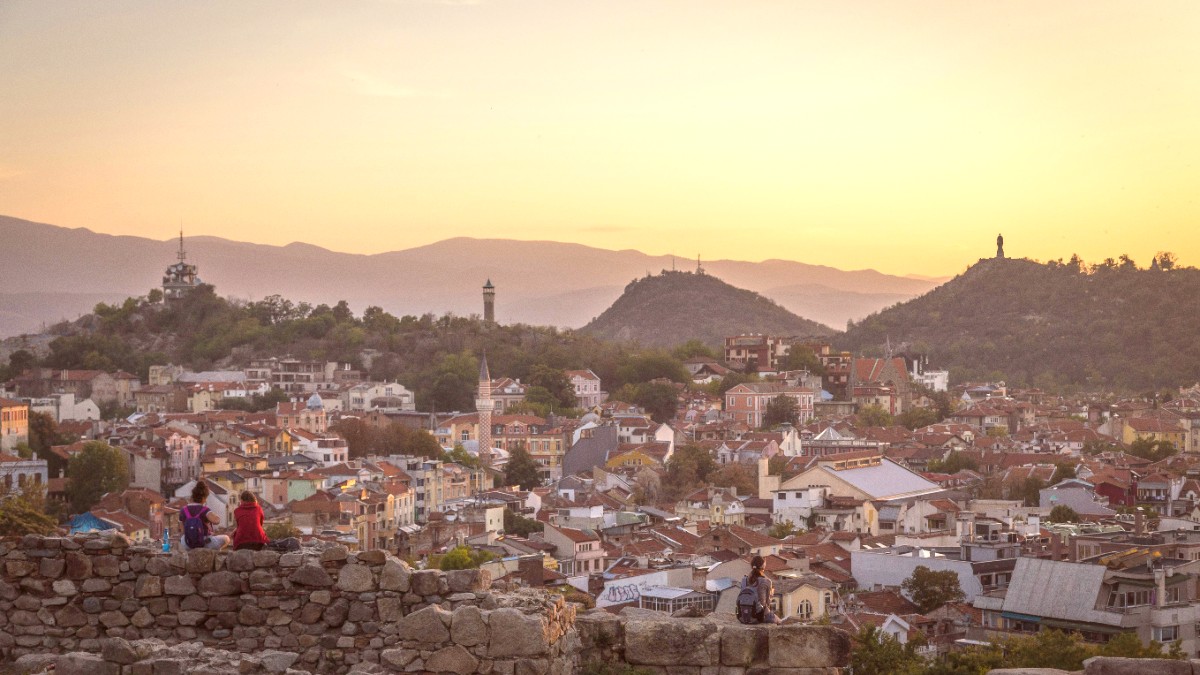
Plovdiv And Rodopi Mountains, Bulgaria
Bulgaria experiences four distinct seasons, each with a different appeal. Plovdiv has a humid subtropical climate. Summers are hot and dry, while winters are cold with frequent snowfall. The Rodopi Mountains experience colder temperatures and more snow, especially at higher elevations.
Spring (April-May) and Autumn (September-October) have pleasant, mild temperatures, suitable for city exploration and hiking. Summer (June-August) is hot and dry, for outdoor activities but with more crowds. Winter (November-March) is cold with snow, suitable for winter sports.
If visiting during summer, stay hydrated and use Sun protection.
Plan indoor activities during the hottest parts of the day.
June - August
Warmest weather, suited for city and outdoor activities. Most attractions open longer.
Higher prices, larger crowds. Very hot temperatures can cause discomfort.
April-May, Sep-Oct
Comfortable temperatures, fewer crowds, lower prices. Beautiful scenery, ideal for hiking.
Cooler evenings and mornings, with a chance of rain.
November - March
Lowest prices, very few tourists in Plovdiv. Ideal for winter sports in Rodopi resorts.
Cold weather. Shorter daylight hours. Heavy snow can affect road conditions.
Travelers from Schengen member states, the European Union (EU), and the European Economic Area (EEA) can enter Bulgaria for short stays (up to 90 days within any 180-day period) without a visa.
Many non-EU countries, including the USA, Canada, UK, Australia, and New Zealand, also enjoy visa-free entry for short tourist stays under the Schengen agreement. This travel to Bulgaria part of their 90-day Schengen allowance. For other nationalities, a short-stay visa is often needed. IVisa and VisaHQ offer visa services.
Valid for at least three months beyond departure and issued within 10 years.
Required for non-Schengen visa-waiver countries. Apply at Bulgarian embassy.
Immigration officials may request proof of onward travel.
Show financial means to cover your stay.
Copies of hotel or other lodging bookings.
Bulgaria, including Plovdiv and the Rodopi Mountains, presents a generally affordable travel experience compared to Western European destinations.
Target daily spending: 50-80 BGN (28-45 USD).
Target daily spending: 100-180 BGN (55-100 USD).
These tables outline typical costs, guiding various travel categories in Plovdiv.
Travelers planning a visit to Plovdiv and the Rodopi Mountains should be aware of health and safety aspects for a safe and pleasant journey.
No vaccinations are mandatory for entry to Bulgaria from most countries.
Consult a travel health clinic or your doctor several weeks before your trip.
Ensure routine vaccinations (MMR, DTP, Polio, annual Flu shot) are current.
Food & Waterborne Illnesses:
While tap water in Plovdiv is generally safe, consider bottled water if you have a sensitive stomach or are unsure. Practice good hand hygiene, and eat at reputable establishments.
Sunburn and heatstroke are concerns in summer. Use High SPF sunscreen, wear hats, and stay hydrated. Mosquitoes are present in warmer months. Use Insect repellent, and check for ticks after outdoor activities.
Pharmacies ("Apteka") are widely available, identified by a green cross sign. Many pharmacists speak some English.
Plovdiv has several hospitals, including University Hospital Sveti Georgi. Private clinics often offer higher standards and shorter wait times.
Pharmacies are widely available, identified by a green cross sign. Many pharmacists speak some English and can assist with minor ailments.
Dial 112 for all emergencies (ambulance, police, fire). This is the European emergency number. Clearly state your location.
Plovdiv is generally a safe city for tourists. Awareness of petty crime and common scams helps avoid issues.
A comprehensive travel insurance policy is strongly recommended for all travelers.
Covers medical emergencies, trip cancellation, lost luggage, and travel delays.
Visit Insubuy for medical and travel-related coverage, including for visitors to the United States.
Check World Nomads for travel insurance tailored to adventurous travelers.